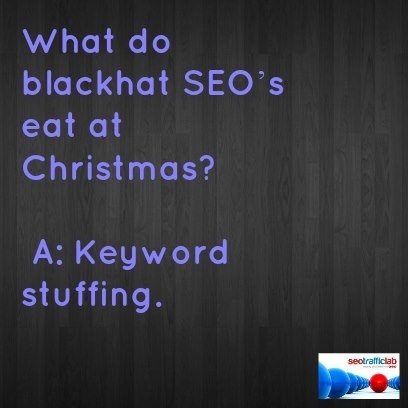Nothing you can say will convince me that this pun is bad for SEO, @paulbradshaw http://t.co/2390DeO9vs #poonami
— Christina D Kenny (@dfordalrymple) February 27, 2014
For some time now basic SEO advice on puns has been simple: don’t do it*.
But the Huffington Post story below (brought to my attention by Christina Kenny) shows how hashtags can make puns SEO-friendly as well – as long as they’ve been adopted by a larger audience, not just coined by the headline writer.
That headline actually has 7 keywords in total – it’s extremely heavily SEO’d for people searching for “sewage pipe burst” and “Kennington” or “South London”.
But it also recognises that many people will be searching for more on this story having seen the #poonami hashtag on Twitter.
In fact, a strictly literal approach would have been ineffective: my colleague Adam Tinworth found that search engine result pages (SERPs) for the literal “London poo” missed the story altogether:
@paulbradshaw @dfordalrymple “london poo” not showing relevant results on SERPs. “london poonami” is. I can’t believe I just checked that.
— Adam Tinworth (@adders) February 27, 2014
This isn’t particularly new – I’ve included hashtags in headlines, URLs and tags for years because the key SEO question is ‘What will people interested in this content be searching for?’.
And sites like Hashtags.org are built to serve up search results for users trying to find out what hashtags refer to – or to assist SEO and social media optimisation (SMO) professionals identify the right hashtag to use.

Hashtag.org’s analytics for #Poonami helps SEO and SMO professionals identify the best hashtags to use
But most hashtags are not puns, and #poonami is the best example I’ve seen of how social behaviour can very quickly turn a pun into an SEO keyword.
One logical conclusion to draw from this is that there’s a role for subeditors and social media managers in coining punny hashtags around stories in the hope that they will catch on in social and drive search traffic as well – but any such tactic would need to recognise when it’s just too late to do so (a hashtag has already been widely adopted) or your hashtag isn’t good enough (users ignore it in favour of another).
Finally, if you think SEO writers don’t appreciate a good pun, check out this groan-worthy list of punny SEO jokes (and perhaps reconsider how great you think puns are…).
*Puns are wonderful in print as a device to intrigue and then entertain the casual reader, but the same behaviour doesn’t dominate online, where it’s important to make it possible for readers to find you in the first place (aside from the importance of social).
However, a more sophisticated toolkit does allow you to use puns. The news_keywords metatag, for example, allows publishers to add keywords to help search engines understand content without alienating readers.
On a more basic level, however, simply changing the URL of a post to include keywords is one way of achieving a similar effect. Elisa Gabbert lists some other techniques here.



Pingback: SEO Weekly Recap (Hey I'm Driving Here Edition)
Pingback: Latest SEO News | Marketing Master Group
Pingback: 9 Common Headline Writing Errors and How to Fix Them - eOffice - Coworking, Office Design, Workplace Technology & Innovation